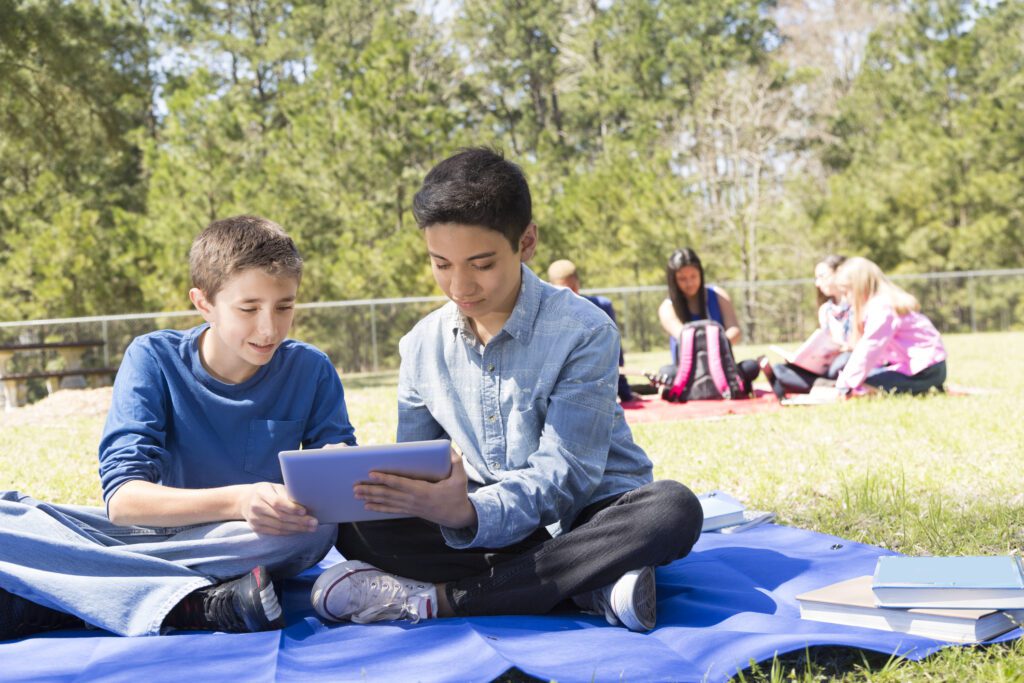The weather is getting warmer, the days are getting longer, and the school bell has rung for the last time this school year! The excitement of summer is in the air, which means it’s time to help your child make the most of his or her summer days.
Creating a summer routine for kids is a great way to ensure your children don’t experience any of the transitional difficulties that can come with a sudden change in routine. From summer learning loss to stress and anxiety, there are a number of reasons why having a summer schedule for kids is important.
Why Children Need Routine
Many children best handle change if it’s expected and accompanied by a familiar routine. A regular routine gives your child a sense of security, awareness, and helps him or her develop self-discipline and control. This provides a learning opportunity and allows your child to remain comfortable and in control of his or her day.
Rapid changes to a child’s routine (or a lack of routine) can trigger anxiety and stress, resulting in behavioural concerns and challenges, especially when heading back to school in the fall. For these reasons, establishing and sticking to a summer routine is important.
The good news is, establishing a routine doesn’t have to be difficult! Keep reading to learn how you can build a summer routine that’s easy to stick to and fun for your child.
Tips For Building A Summer Routine
Here are some simple (and fun) ways to build a summer routine your children will be excited about sticking to:
1. Favor Routine Over Schedule
Having a routine instead of sticking to a strict schedule keeps things open for flexibility and encourages your child to follow the routine on his or her own.
2. Start With Breakfast
One of the easiest ways to stick to a routine is starting in the morning. Encourage your child to wake up and get ready for breakfast at the same time each day. This will help him or her build a regular morning routine that becomes easy to follow.
3. Participate in Organized Activities
Whether it’s swimming lessons on Tuesdays or a book club with friends on Fridays, participating in organized activities gives your child something to look forward to and expect every week.
4. Create A Summer Goals List
Creating a summer goals list is a fun activity that allows your children to be involved in the summer planning process, all while working on goal setting skills. Encourage your child to come up with some goals he or she would like to accomplish and work activities into his or her routine to help achieve those goals.
Some great summer goals include:
- Read three new books
- Grow carrots in a garden
- Learn how to make jam
- Improve a karate level
5. Make It Interactive
Allow your child to participate in the routine planning process, and share it somewhere everyone can see. Perhaps every Sunday your family plans out the week and you hang it on the fridge. It’s much more likely that your child will stick to the routine if they actively participated in the planning process and has a visual aid to refer to throughout the week.
6. Include Learning Opportunities
To reduce the risk of summer learning loss, incorporate learning opportunities into your child’s summer routine. This can be as simple as reading for fifteen minutes before bed or working on math questions for ten minutes after lunch. Just a few minutes of learning each day will make a huge difference in keeping your child engaged over the summer (and better prepared when it’s time to head back to school).
7. Don’t Forget A Bedtime Routine
Summer is an exciting time of long days and late nights for kids—so winding down at the end of each day is an important ritual to build into your child’s routine. Encourage your child to go to bed at the same time each night and follow a bedtime routine, like reading a book or having a bedtime snack.
Keep Your Child On Track This Summer
Establishing a summer routine for kids may seem tricky, but with these tips, the task becomes a breeze. Not only will this help keep your child on track over the summer, it will also better prepare him or her to return to school once fall rolls around again.
Check out these other end-of-school year/summer resources:
How To Finish Summer Homework Assignments: 14 Tips To Save Your Child’s Summer
Report Card Discussions
Tackling The Report Card Results Talk: 10 Tips







